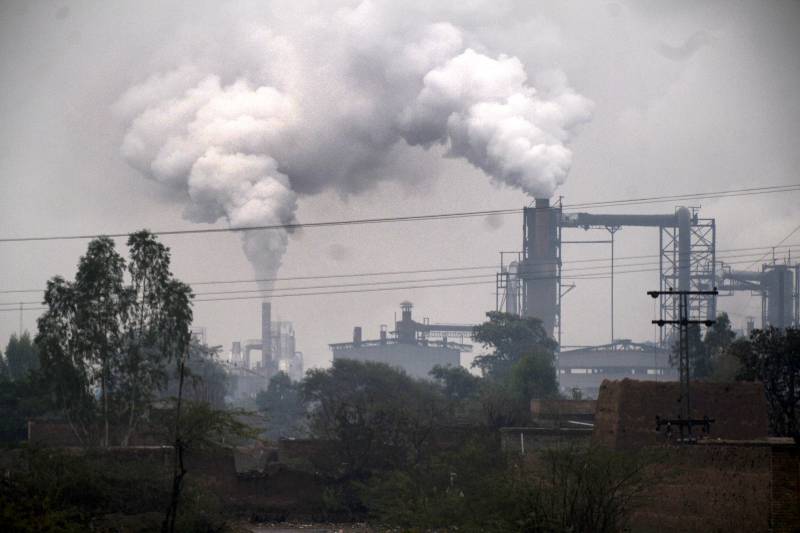
The annual climate change summit, held in the Gulf state of United Arab Emirates (UAE), revolved around the issue of phasing out the world's dependence on fossil fuels while seeking finance for building climate resilience in countries most impacted by climate change but who contribute the least to it.
This was suggested by Dr Abid Qaiyum Suleri, the Executive Director of the Sustainable Development Policy Institute (SDPI) of Islamabad. He noted that despite a week of negotiations at the global climate summit- Conference of Parties 28 (COP-28)- the phasing out of fossil fuels was a major bone of contention among the states that produce petroleum products and those who consume these products.
Access to climate finance, promised by the developed world for so long to the developing countries, also appeared elusive as no formal modalities for its distribution to the most impacted and vulnerable countries due to climate change have been finalised.
In an online interaction with journalists on Thursday, Dr Suleri said the first part of COP-28 had come to an end with a major focus on the broader text of the negotiations. In the next phase, countries will present their opinions on pressing issues related to climate resilience and green transformation.
He added that the idea of phasing out fossil fuels was debated two years ago at COP-26 in Glasgow. But like then, it remains a major issue amongst the countries at the COP.
"The discussions are taking place around either it can be phased out completely in an orderly manner, or countries should voluntarily make efforts to achieve the goal, or it should not be discussed anymore," he said.
The SDPI executive director said that the leading oil-producing country, Saudi Arabia, has categorically announced that it will veto any language related to the phase-out of fossil fuels. Moreover, it has been revealed that the carbon capturing and sequestration of financing and commercial viability in itself was a great challenge to meet for offsetting carbon emissions.
Providing the crux of the global stocktake (GST) report, Carbon Gap and World Meteorological Organization (WMO) reports in the past year, and those launched at COP-28, he said all indicate that the global average temperature was persistently rising and that the ongoing year 2023, after 2016, will be the hottest year of the century.
"The arctic ice poles have melted 75% more than the previous year. It is obvious from the fact that efforts must be made to address this crisis, but that requires capital and political leadership, which is a challenge," Dr Suleri said.
Commenting on the GST Report outcomes, he said the UK government heavily missed its NDC targets while developing countries are also lagging behind their pledges due to lack of funds. While the developed countries claim funding is available, the life patterns of developing countries are heavily dependent on energy produced by fossil fuels.
Despite the absence of an agreement, Dr Suleri said there had been some glimpses of positivity in the form of an ambitious declaration on food security. The sixth largest dairy producer in the world has announced that it will voluntarily reduce its methane emissions.
"These things are less important as fossil fuels' future is important and a deadline for its phase-out to be agreed by all the countries, which appears to be elusive in the prevailing scenario, is crucial like to phase out fossil fuels in an orderly manner by 2050 or 2060," he said.
Quoting the Somalian president's speech at COP-28, he said access to climate financing is the second most important issue that needs attention. While the Somalian president lamented that after floods devastated his country, they were not provided access to climate finance, a feeling Pakistan was all too familiar with in 2022.
"Country after country is becoming vulnerable to climate change, but there is one week left to make all these efforts. However, the outcome of COP-28 negotiations is important as how the presidency will manage to get a consensus of delegates from 200 countries on a single draft," he wondered.

